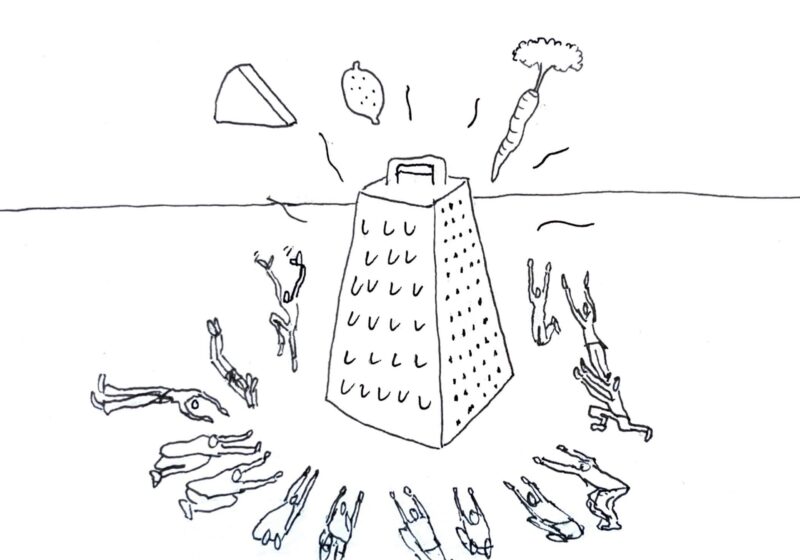I am not a fan of Donna Karan. My opinion of the well-respected designer is not a popular one. I was reassured when reading a review of Karan’s latest collection by The New York Times fashion critic Cathy Horyn in which she said Karan “was a repetitive show, the concepts not really new.”
Not only did I learn that it was alright to profess disapproval for a name as monumental as Donna Karan’s, but this also made another question pop into my head — why should anyone, let alone the average college student that can barely afford a decent coffee maker, bother with the fashion industry?
Generally speaking, there are two reactions to the fashion industry: worshipping at its feet or rejecting it as a sinful institution signaling the coming of the anti-Christ. It sounds extremist, but oddly enough there is little wiggle room.
The further you dig, the more the fashion industry seems to be a streamlined group of people who are mentally synced to the latest Vogue’s “what to wear now” or Elle’s top trend’s list of the season.
The fashion industry isn’t a solid, identifiable thing. It’s not even a select group of people. I’m actually fairly certain it isn’t restricted by space or time. More than anything, it’s a mindset.
A smaller version of the fashion industry takes place on this very campus. See what people are wearing? Plaid, scarves, those equestrian boots. Should I want them?
I saw lots of cobalt dresses at a party, lots of zippers and hardware. Does that work for me? Should I even be worried about what other people are wearing?
It is a bustling hierarchical network of people and clothing that I believe take center stage in the mind. There is a relentless push forward, when “now” actually means “five minutes from now.” Inevitably, there is a corresponding dread of being left behind.
This is why fashion is so personal, so tied to our self-consciousness. What we decide to show to the world — or, at its most elemental, how we decide to cover up our nakedness — is going to be taken in on a daily, hourly, minutely basis by everyone else around us.
I caught a glimpse of a girl at Starbucks wearing this fantastic patchwork blouse. She was also sporting black leggings, but after a long week comfort does tend to prioritize itself. What I loved about the outfit was the sense that she was aware of this unspoken fashion network — respected it, but also stepped away from it.
Fashion, at its ideal, is pure self-expression, untainted by the views and presence of others. The best outfits, and the best resultant moods for that matter, coincide with an attitude of detachment from the fashion industry; being informed and yet independent.
A friend once asked me if it would be “OK” to wear a black fabric belt around her hips in a yellow dress. Of course, it’s more than OK!
Not because I had a list of references from designers and magazines to back up my claim that her outfit was “in,” but simply because the stylistic gesture was so characteristically her. Nobody else would have suggested it and nobody else would have worn it with such ease.
I have found myself in that same dilemma on more than one occasion. Don’t



